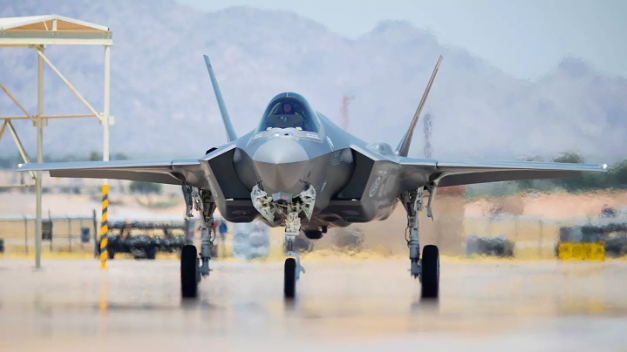The US Senate has voted to block transfers of the F-35 fighter jet to Turkey, reflecting increasing tension with a key Nato ally, in a move that could ultimately hold up the sale of 100 planes worth close to $10bn.
A bipartisan clause added to the National Defense Authorisation Act – which was passed by the Senate on Monday evening by a vote of 85 to 10 – would prohibit the transfer of F-35s to Turkey until the secretary of defence submits a plan to remove Turkey from participation in the programme, which includes allocating production of parts to each country.
Turkey is one of 14 NATO member countries that help construct the stealth plane, along with the UK, Norway and Israel.
US senators made the intervention given concerns over Turkey’s stated intent to install the Russian S-400 air defence system, which Pentagon officials are concerned would put the secrets of the F-35 and the data it collects at risk.
Senators also wanted to register their dissatisfaction at the detention of an evangelical US pastor, Andrew Brunson, who is being held in Turkey after being charged with terrorism in the wake of a 2016 coup attempt that Ankara believes was spearheaded by a Turkish resident of the US.
The bill, which must still be passed by the House, could undergo further changes in the reconciliation process and is not expected to become law until later in the summer.
Lockheed Martin, the maker of the F-35, said it still expects to hand over initial F-35s to Turkey in a ceremonial exchange at Fort Worth in Texas on June 21, probably before the bill becomes law. Turkish pilots are due to be trained on the plane in-country, but the planes themselves are not scheduled to leave the US for at least a year, giving the Pentagon time to find a solution in order to honour the new law if it passes.
But the intervention will create bureaucratic hurdles for US officials, who say that relations between the two Nato allies have in recent months reached their lowest ebb since Turkey’s invasion of northern Cyprus in 1974.
Source: ft





































